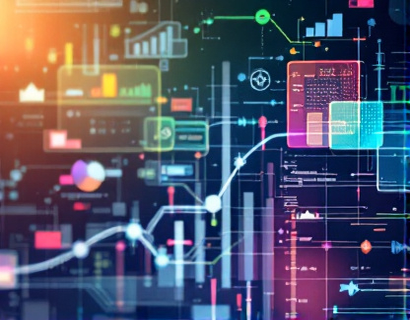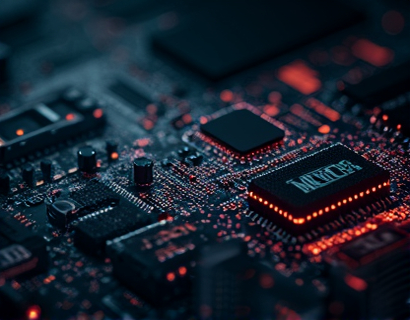Personalized AI-Driven Math Education for Children and Young Learners: Empowering Future STEM Success
In the rapidly evolving landscape of education, the integration of Artificial Intelligence (AI) is transforming traditional learning methods, particularly in subjects like mathematics which have long been a source of challenge for many students. An AI-driven personalized platform tailored for children and young learners aged 5 to 18 is revolutionizing the way math is taught and learned. This innovative approach not only addresses the diverse learning needs of students but also plays a crucial role in building a strong foundation for future success in STEM fields.
Understanding the Need for Personalized Learning
The conventional one-size-fits-all approach to education often fails to meet the individual needs of students, leading to disengagement and poor academic performance. Each child has unique learning preferences, speeds, and styles, which a personalized AI-driven platform can cater to effectively. By analyzing a student's strengths, weaknesses, and learning patterns, the AI can create a customized learning path that ensures no student is left behind. This tailored approach is essential in fostering a deep understanding of mathematical concepts and nurturing a lifelong passion for learning.
Interactive Problem-Solving at the Core
One of the key features of an AI-driven math education platform is its ability to offer interactive problem-solving experiences. Traditional math exercises often involve static problems that do not adapt to the student's progress. In contrast, an AI system can generate a variety of problems that increase in complexity as the student masters each concept. This dynamic approach keeps students engaged and challenged, promoting a deeper comprehension of math principles. Interactive elements such as instant feedback, visual aids, and gamification further enhance the learning experience, making math not only educational but also enjoyable.
Engaging Resources to Spark Interest
To truly captivate young learners, math education must extend beyond textbooks and classrooms. An AI-driven platform can provide a wealth of engaging resources, including videos, interactive simulations, and real-world applications of math concepts. These resources help bridge the gap between abstract mathematical theories and practical applications, making the subject matter more relatable and interesting. For instance, using AI to create simulations that show how math is used in engineering, finance, or environmental science can inspire students to see the relevance of math in their future careers and daily lives.
Adaptive Learning Paths for Optimal Progress
A critical advantage of AI in education is its ability to create adaptive learning paths. By continuously assessing a student's performance and understanding, the AI can adjust the difficulty and type of content presented. This ensures that each student is always challenged appropriately, neither becoming bored with too-easy tasks nor overwhelmed by overly complex ones. Adaptive learning paths also allow for a more efficient use of study time, focusing on areas where the student needs improvement while reinforcing already mastered concepts. This personalized approach accelerates learning and builds confidence in mathematical abilities.
Building Confidence Through Positive Reinforcement
Confidence is a vital component of academic success, and an AI-driven platform can significantly contribute to its development in math education. Through positive reinforcement, such as praise for correct answers and encouragement during difficult tasks, the AI helps students feel more at ease with math. This supportive environment reduces anxiety and fosters a growth mindset, where students view challenges as opportunities to learn rather than insurmountable obstacles. Over time, this positive attitude towards math can lead to better performance and a greater willingness to tackle advanced topics.
Enhancing Academic Performance
The impact of personalized AI-driven math education on academic performance is profound. By addressing individual learning gaps and providing targeted support, students can achieve higher levels of proficiency in math. Studies have shown that personalized learning interventions can lead to significant improvements in test scores and overall academic achievement. Moreover, the data-driven insights provided by the AI allow educators to identify trends and patterns in student performance, enabling them to tailor their teaching strategies more effectively. This synergy between AI and human teaching enhances the educational experience for all students.
Fostering a Lifelong Passion for Mathematics and STEM
Perhaps the most valuable outcome of an AI-driven personalized math education is the cultivation of a lifelong passion for mathematics and STEM fields. By making math accessible, engaging, and relevant, students are more likely to develop a deep interest in these subjects. This interest can lead to a career in STEM, which is crucial for the future of innovation and technological advancement. As students progress through their education with a strong math foundation, they become better equipped to pursue careers in science, technology, engineering, and mathematics, contributing to a more skilled and innovative workforce.
Challenges and Considerations
While the benefits of AI-driven personalized math education are clear, there are challenges and considerations that must be addressed. Ensuring the accuracy and reliability of AI-generated content is paramount, as incorrect information can lead to misunderstandings and misconceptions. Additionally, the integration of AI in education must be balanced with the role of human teachers, who bring empathy, creativity, and social interaction to the learning process. Privacy and data security are also critical concerns, as sensitive student information must be protected. Addressing these challenges requires a collaborative effort from educators, technologists, and policymakers to create a robust and effective educational ecosystem.
Conclusion
The future of math education for children and young learners is being shaped by AI-driven personalized platforms that offer interactive problem-solving, engaging resources, and adaptive learning paths. These tools not only enhance academic performance but also build confidence and foster a lifelong passion for mathematics and STEM. As we continue to refine and implement these technologies, the potential for transformative educational outcomes is immense. By embracing AI in math education, we can empower the next generation of thinkers, innovators, and leaders, ensuring a brighter and more prosperous future for all.










































